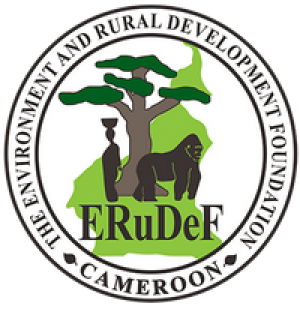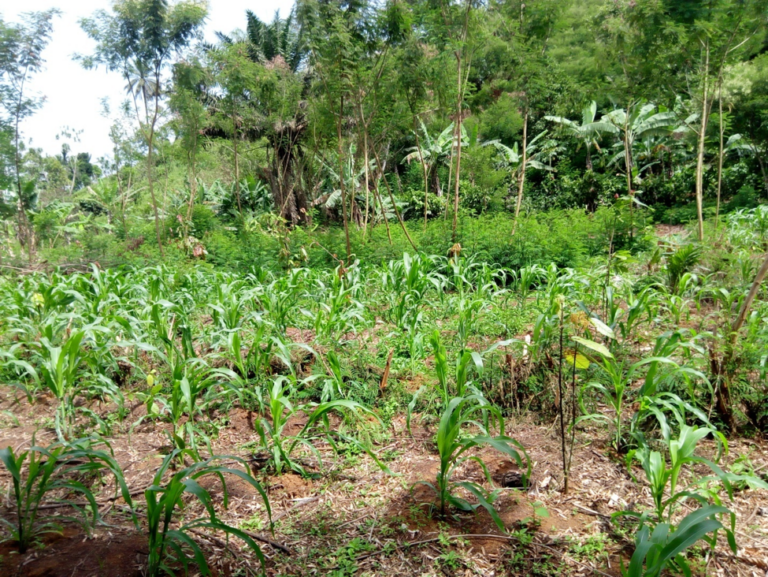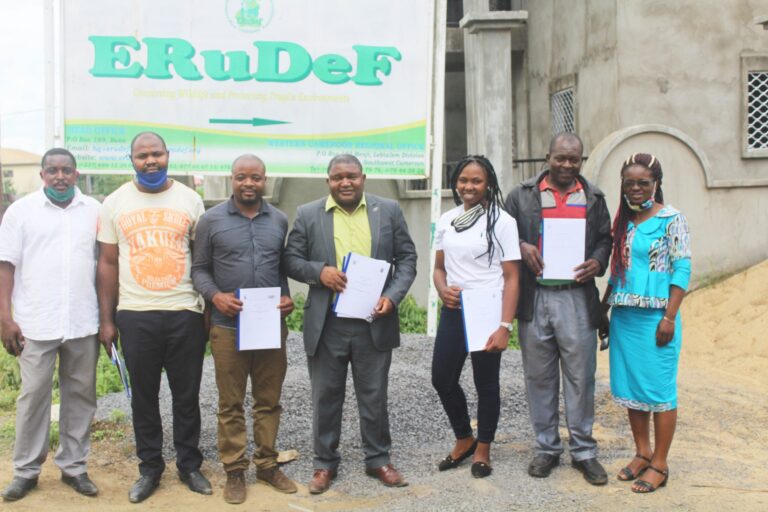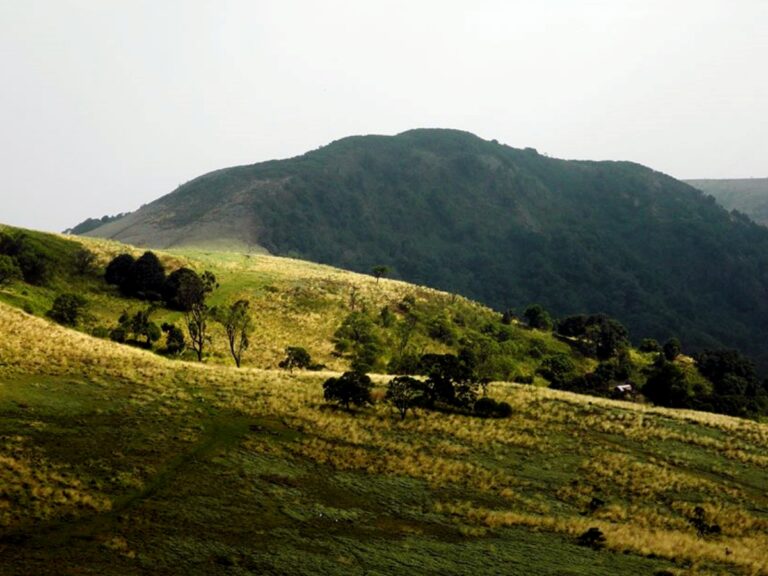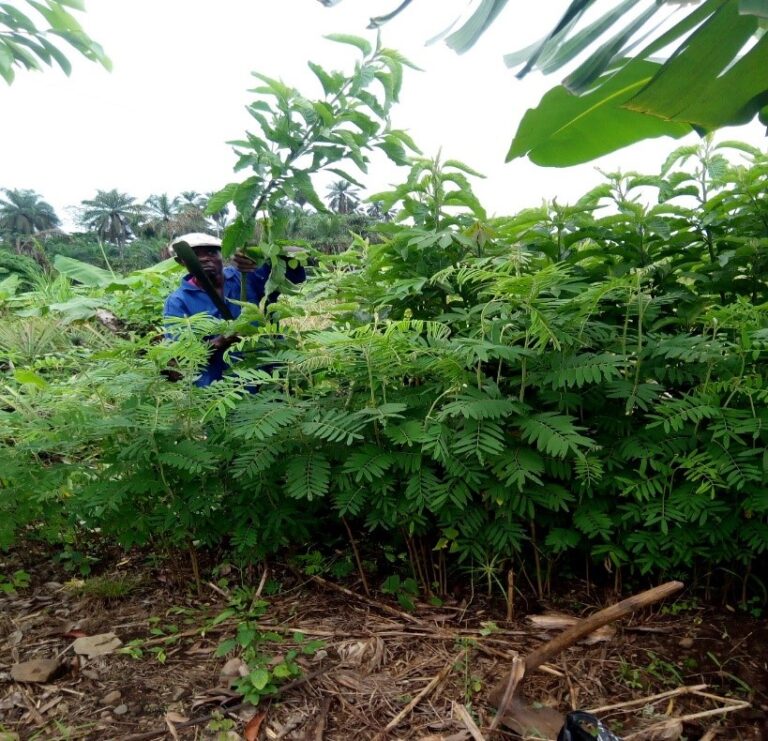By Shuimo Trust
The year 2020 has been one of the most challenging years in human history given the outbreak of the novel coronavirus pandemic that has claimed thousands of lives around the globe. The 2020 edition of the International Day of Biological Diversity is therefore celebrated in another context unlike the past editions. A lot have changed with our environment as coronavirus continues to spread around the world with no slightest intentions of stopping. we now breath clean air unlike before given the lockdown measures put in place by most governments to contain the spread of the deadly virus around the world.
Celebrated under the theme “Our solutions are in the nature”, the 2020 edition of the International Day of Biological Diversity is seen as a unique day for the human race to re-examine its relationship with the natural world. Climate change is staring us in the face, some species are gradually disappearing, clean water and air is becoming a luxury. All of these dysfunctions are caused principally by human activities. For us to reverse this dysfunction, we need a concerted action- from micro to macro, or put differently, from local to international.
ERuDeF’s efforts in biodiversity conservation and restoration
In her 20 years of existence, the Environment and Rural Development Foundation (ERuDeF) has been working tirelessly and ceaselessly in conserving biodiversity in Cameroon. Many of her projects and programs are directed toward this direction as outlined below.
ERuDeF’s restoration projects/programme has greatly helped in bringing back biodiversity in ecosystems that are experiencing continues biodiversity loss. One of such projects in this direction is the Mount Bamboutos Initiative that is expected to restore 35000ha of land in the degraded Mount Bamboutos in western Cameroon. Due to anthropogenic activities such as poaching, deforestation, bush fires, poor farming practices and urbanization, the Mount Bamboutos landscape has been severely degraded. This project is expected to span for 15 years with its pilot phase ending in 2021. The Project will plant 15 million trees, serve 30.000 people and benefit close to 5 million people.
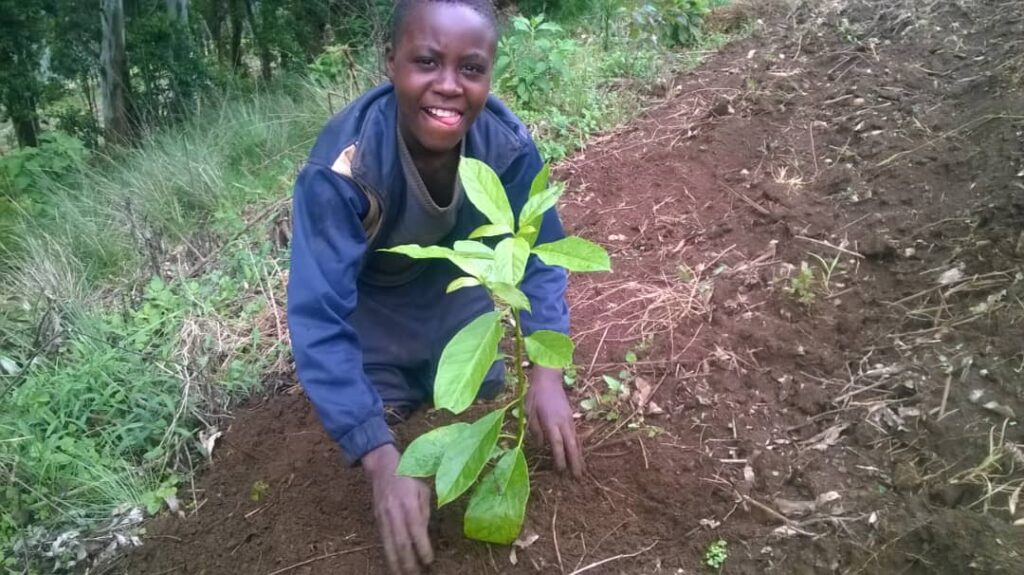
Youth planting tree in Bafou, west Region, Cameroon Also, The Mandara Mountain Initiative, just like the Mount Bamboutos Initiative will also help to plant 15 million trees to serve the Lake Tchad that is fast drying off. This project will also last for 15 years. Just like the two projects mentioned above, the Adamawa initiative will equally restore the the fast degrading Adamawa plateau in northern Cameroon with the planting of over 10 million tree.
ERuDeF has also initiated the the Cameroon Environmental Education Initiative (CEEI) which is designed to educate people on the importance of protecting the environment. This initiative that was initiated and tested in 2014 in the Libialem Highlands has been very successful. The Lebialem Highlands Environmental Education Association (LHEEA) was formed to support the continuity of this program. So far fifty Environmental clubs have been created and managed by the LHEEA in schools across the Tofala, Mak-Betchou, Mount Bamboutos and Tofala-mone conservation areas.
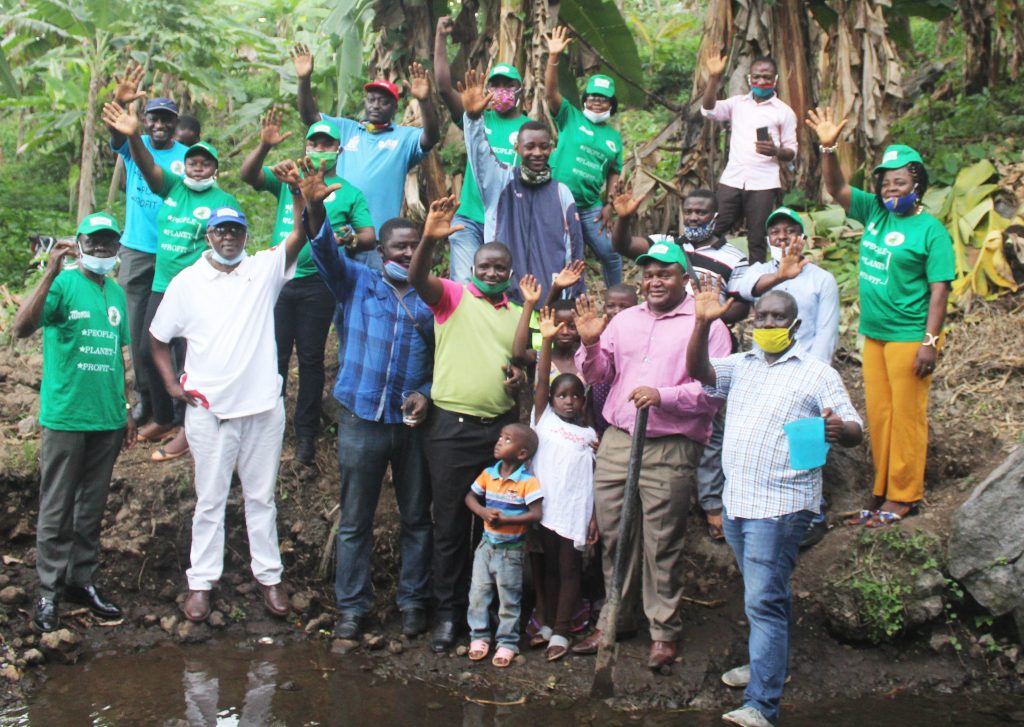
The also the ERuDeF Institute of Applied Biodiversity Sciences has also championed environmental education in Buea, chief town of the Southwest region of Cameroon.
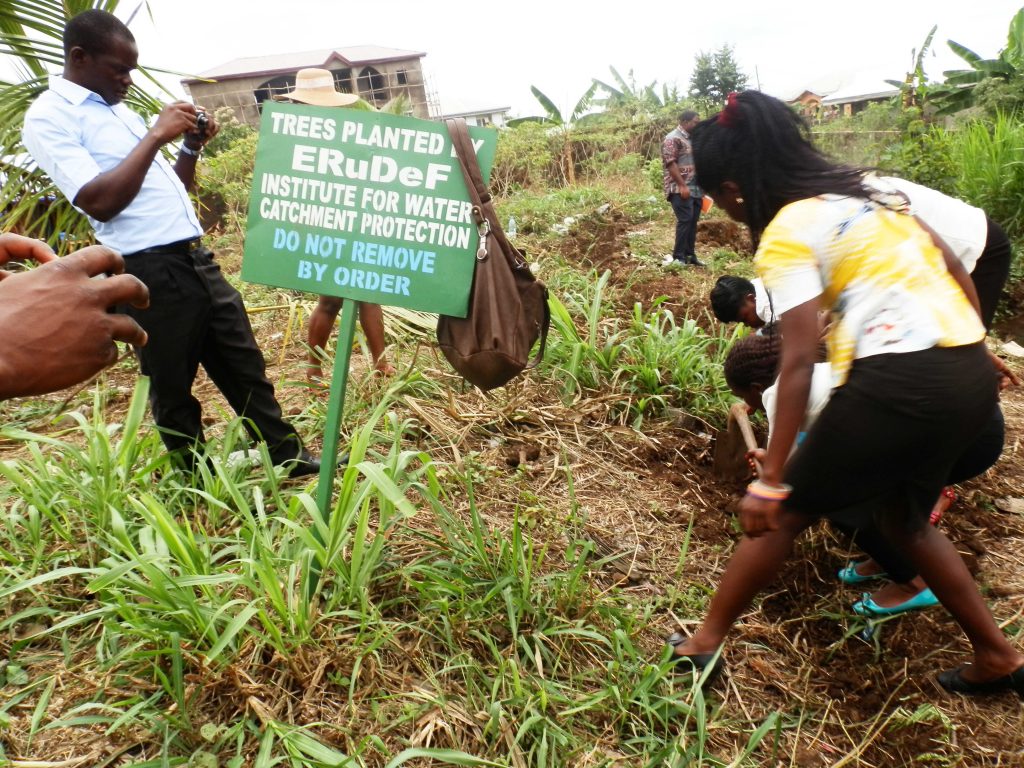
ERuDeF has equally championed creation of conservation corridors, uninterrupted areas of forest and other habitats rich in biodiversity that link protected areas. The creation of protected areas and conservation corridors has greatly helped in the protection of biodiversity. These corridors include, the Tofala-Mone Corridor Project, Lebialem Highlands in Western Cameroon This project succeeded to create the bio-bridge or a genetic corridor linking the great apes of the Tofala to those of the Takamanda-mone landscape.
The Deng Deng-Dja conservation corridor just like the Tofala-Mone Corridor seeks to facilitate wildlife migration from Northern Cameroon to South Western Cameroon through Nigeria and to south Eastern Cameroon to join the greater Congo Basin forest. ERuDeF is helping to create this corridor with support from a number of partners amongst which is World Land Trust (WLT).
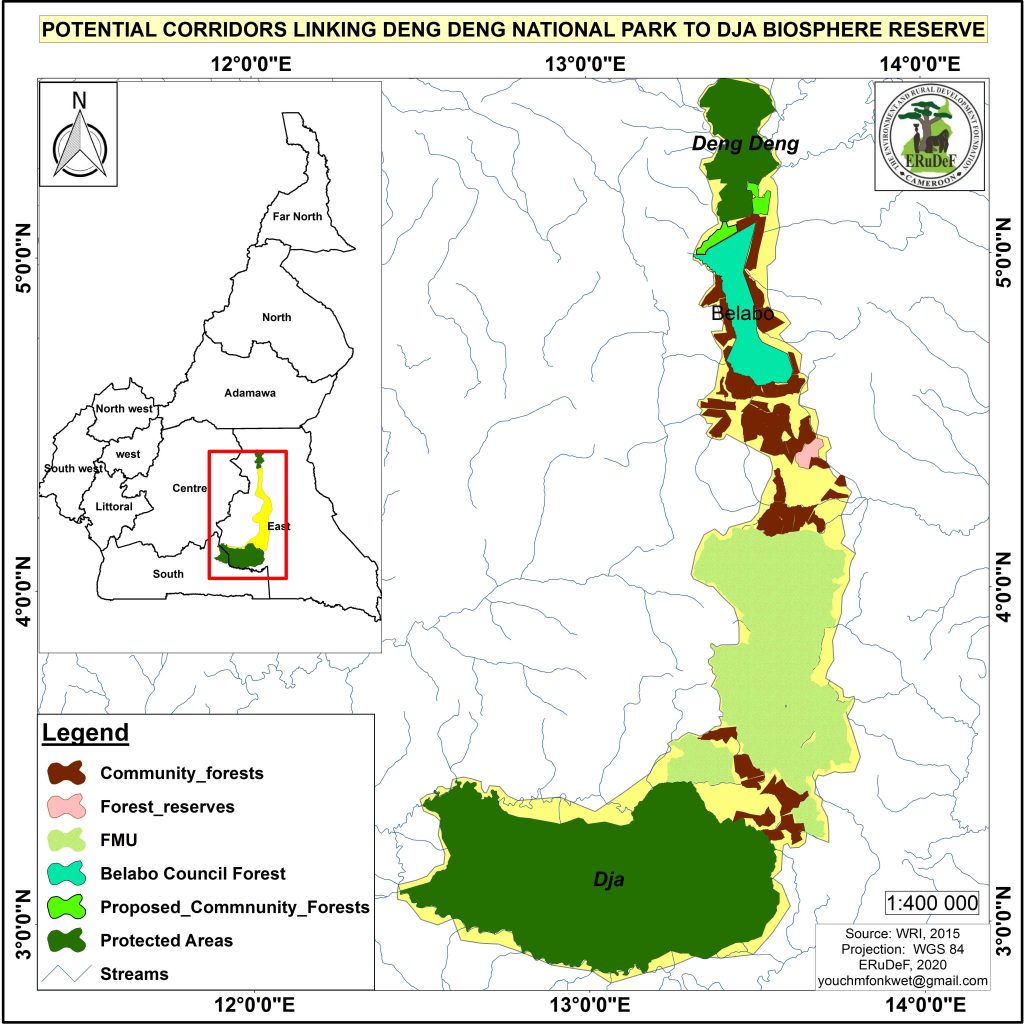
All the efforts put by ERuDeF just like other organisations around the world to conserve and/or restore biodiversity need to be boosted by the local governments. The time to act is now, “Our solutions are in the nature”.
